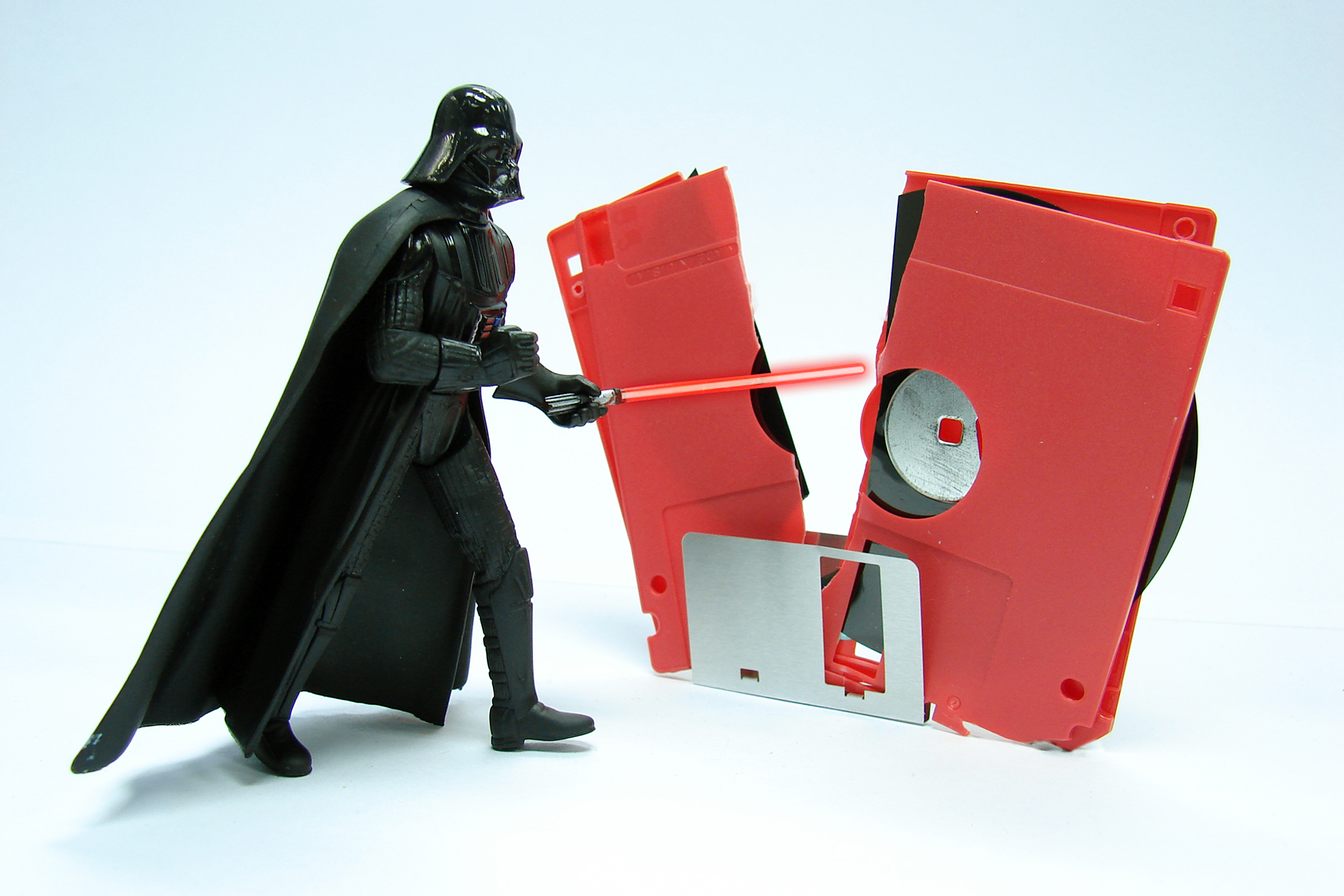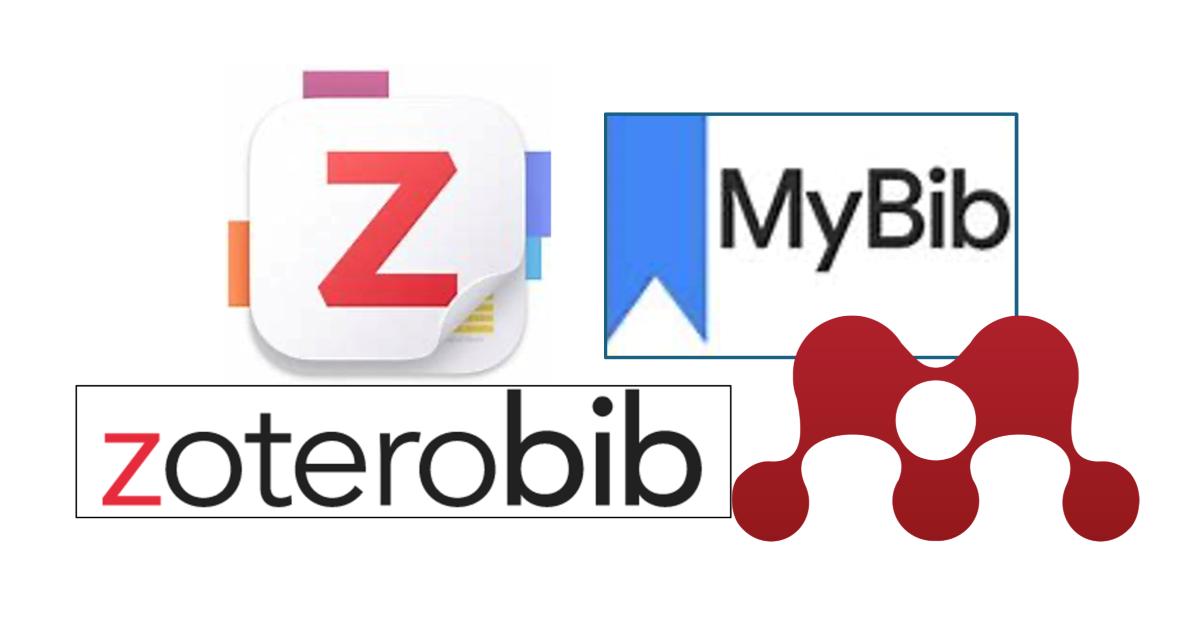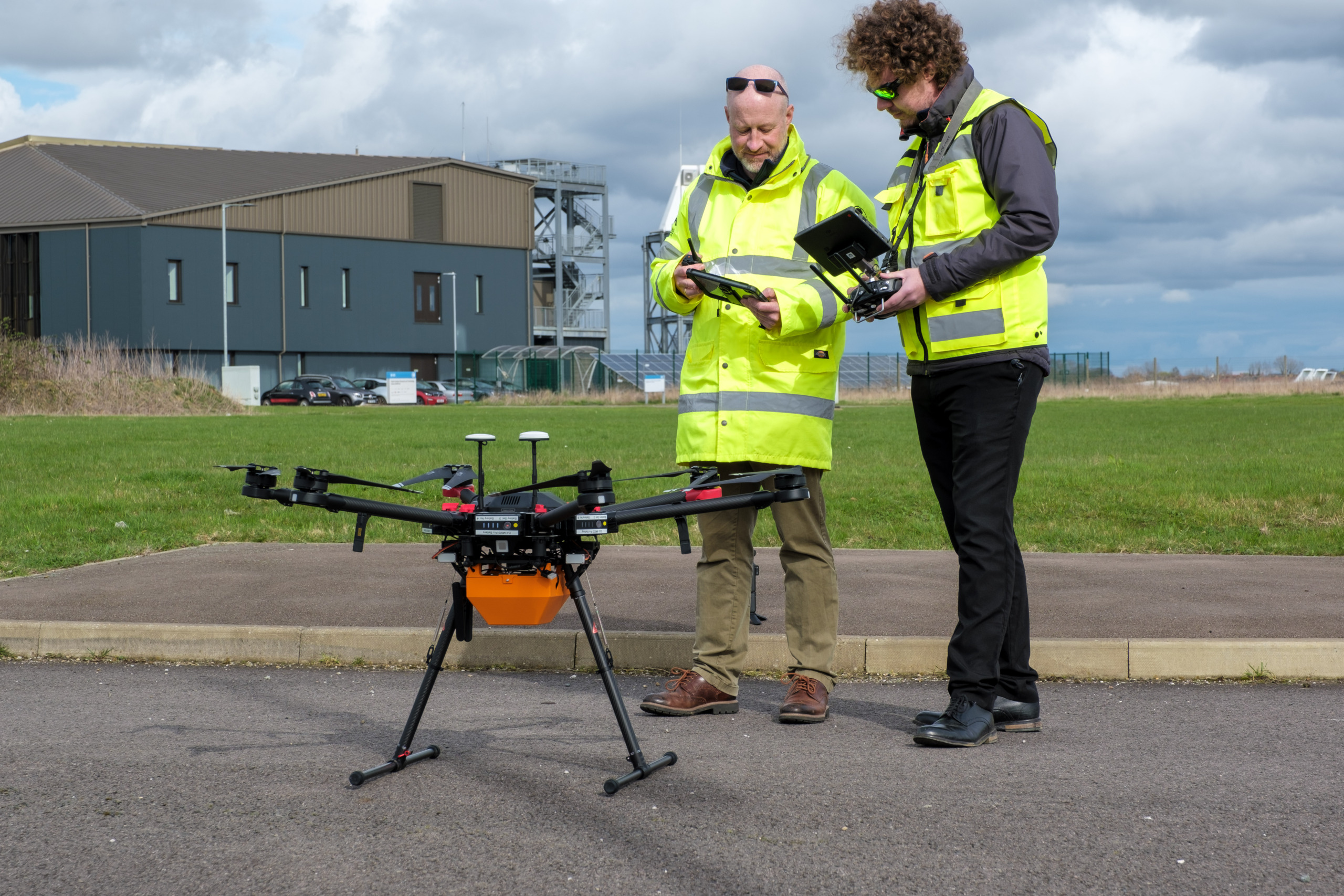Why should we care about file formats?
08/02/2017

Many funders require you to share your research data after your project, to increase its value and reach, and potentially increase your impact – and secure preservation makes your data easier to retrieve and understand if you want to reuse it yourself in future, too. But if data is preserved for a decade or more, how likely is it that it will actually be usable in the future?
We used to store data on DV tapes and floppy disks, but how many people could read these today? My remaining floppy disks certainly make more effective drinks coasters than storage devices! In a similar way to how physical storage formats change, file formats change, too, especially those created by companies that then go on to develop new formats or even go out of business. It’s therefore important to choose file formats wisely.
Wherever possible, you should save in an open format (such as csv), rather than a proprietary format (such as xls) that requires specific software to read it properly and is unlikely to be as interoperable. Some proprietary software only runs on particular operating systems, which excludes some users from being able to open the files. Such proprietary formats might not even be fully readable by the same software a few versions down the line – Matlab and Microsoft products in particular are known to have this issue. (Microsoft Works was discontinued in 2009 but files need to be converted to be readable today and may lose their formatting or some content in the process; have you also encountered Compatibility Mode issues in Word due to version changes?)
So to help keep your data usable for the long-term, try to choose from an open format in the table below; the more extensive UK Data Service format advice is also a valuable reference.
| Type of data | Recommended format(s) | Format(s) to avoid |
| Qualitative textual data | .xml, .rtf, .txt, .pdf (PDF/A) | .doc |
| Quantitative tabular data | .por, .csv, .tab | .xls and other proprietary database formats |
| Images | .tif, .png, .svg, .jpg | .psd |
| Audio | .flac, .wav | .wma, .ra, .ram |
| Video | .mp4 | .wmv, .mov, .avi |
If you’re depositing the file in CORD, our new data repository, we will accept all formats at the moment but are reviewing how to handle these in order to ensure the files’ long-term usability, as we are required to retain data accessibly for 10+ years. And of course sometimes you cannot avoid using a proprietary format – this is fine, but it will be important to make this clear when depositing the file on CORD or another repository, so anyone viewing the record will know what requirements there are to be able to access the data in the file. See the RDM intranet site for more advice and contact details for further help.
Image: “I find your lack of space disturbing” by N. Hussein, CC-BY-NC-SA 2.0, available at: https://www.flickr.com/photos/nhussein/3583560407/
Categories & Tags:
Leave a comment on this post:
You might also like…
Credibility, confidence and collaborative focus: The impact of studying for a sustainability apprenticeship at Cranfield
For participants on Cranfield’s Sustainability Business Specialist Apprenticeship, it doesn’t take long for their studies to start to have an impact, with that impact ranging from personal growth and career progression, to organisational effect ...
Meet Mendeley: a powerful referencing tool that does the hard work for you!
Are you looking for a way to manage your references, create in-text citations and reference lists for your assignments or thesis? If so, you may wish to consider using Mendeley. What is it? Mendeley is ...
Adding documents to your Mendeley account
To make the most of a Mendeley account, it is useful to create and maintain a ‘Library’ of references. You can add references and documents to this Library in a number of ways: 1) Drag ...
Choosing the right reference management tool for you…
Are you thinking about using reference management software to help you manage your references? The Library is here to help you. While Mendeley has been our go-to reference management software for some years, we've recently ...
Cranfield Seed Fund recipient, Cosysense, are using AI to solve air conditioning problems and provide a net zero alternative
If you’ve ever worked in an office environment you’ve probably been involved in, or overheard, a conversation about the air conditioning. Well, it’s no surprise it’s a common complaint when research shows that up ...
An Eye-Opening Journey in Advanced GIS & Remote Sensing at Cranfield University
My experience in the Advanced GIS and Remote Sensing course at Cranfield University was nothing short of transformational. From day one, the course was designed to provide both technical expertise and real-world applications. What ...






